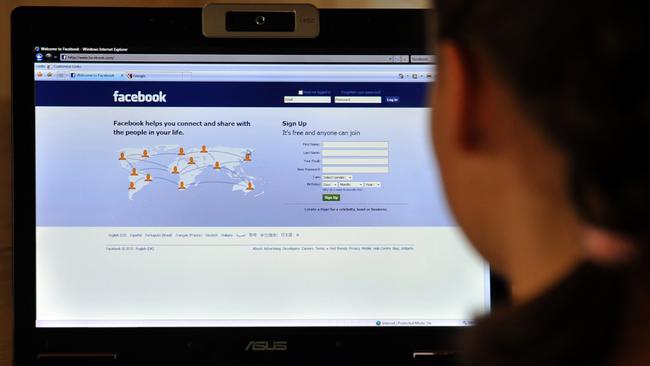How your social media activity can be used to de-anonymise your browsing history
IF YOU’RE an avid social media user, researchers have revealed just how easy it is to see everything else you do online.

THE expectation of anonymity on the internet is an idea that continues to be revealed as something to believe at your own peril.
Computer scientists at Princeton University and Stanford University are the latest researchers to show just how easy it is to trace our online activities even when we think our internet surfing is anonymised.
The researchers were able to write computer programs that found patterns among anonymised data about internet traffic and used those patterns to identify individual users by matching them to their social media profiles.
If you are active on various social media sites such as Facebook, Twitter or Reddit — which is a vast majority of Australian netizens — your profiles could theoretically, and rather easily, be used to match you to your anonymised internet browsing history.
“Our work is indicating that web browser history is not as anonymous as one might of thought,” Stanford University researcher Sharad Goel told news.com.au.
A group of 400 internet users volunteered their anonymous web browsing history to Mr Goel and his fellow researchers who were able to determine their identity with 70 per cent accuracy. They did so by using the computer program to identify patterns and cross-reference the web links people clicked on via social media with their browsing history.
“If they had clicked on a lot of links (on social media) than we were more accurately able to identify them,” Mr Goel said.
“Twitter in particular” was most useful in uncovering people’s identity.
Researchers were somewhat surprised at the high degree of accuracy they were able to obtain using the method.
“We had an intuition but it wasn’t clear to us if we’d get 10 per cent accuracy, 50 per cent accuracy or 90 per cent accuracy,” he said.
Their findings provide another blow to the notion of online privacy and the research paper is scheduled to be presented at the 2017 World Wide Web Conference in Perth, Australia in April.

“Our approach is based on a simple observation: each person has a distinctive social network, and thus the set of links appearing in one’s feed is unique. Assuming users visit links in their feed with higher probability than a random user, browsing histories contain telltale marks of identity,” researchers wrote in the paper.
Much of the information used in the study is readily available, researchers said. Anyone listening to internet traffic, companies involved in targeted online advertising, ISPs and a bunch of Australian government agencies all have access to browsing histories.
“It is already known that some companies, such as Google and Facebook, track users online and know their identities,” said Arvind Narayanan, an assistant professor of computer science at Princeton. But anyone with access to anonymised browser histories could conceivably use this tactic to de-anonymise the data and track people’s online activity.
As the Australia government considers expanding access to the data collected under its metadata laws, Mr Goel said he hoped the research would compel ISPs to limit the amount of data they keep on customers.
“We were trying to highlight some of the inherent risks involved in maintaining these types of histories,” Mr Goel said.



